
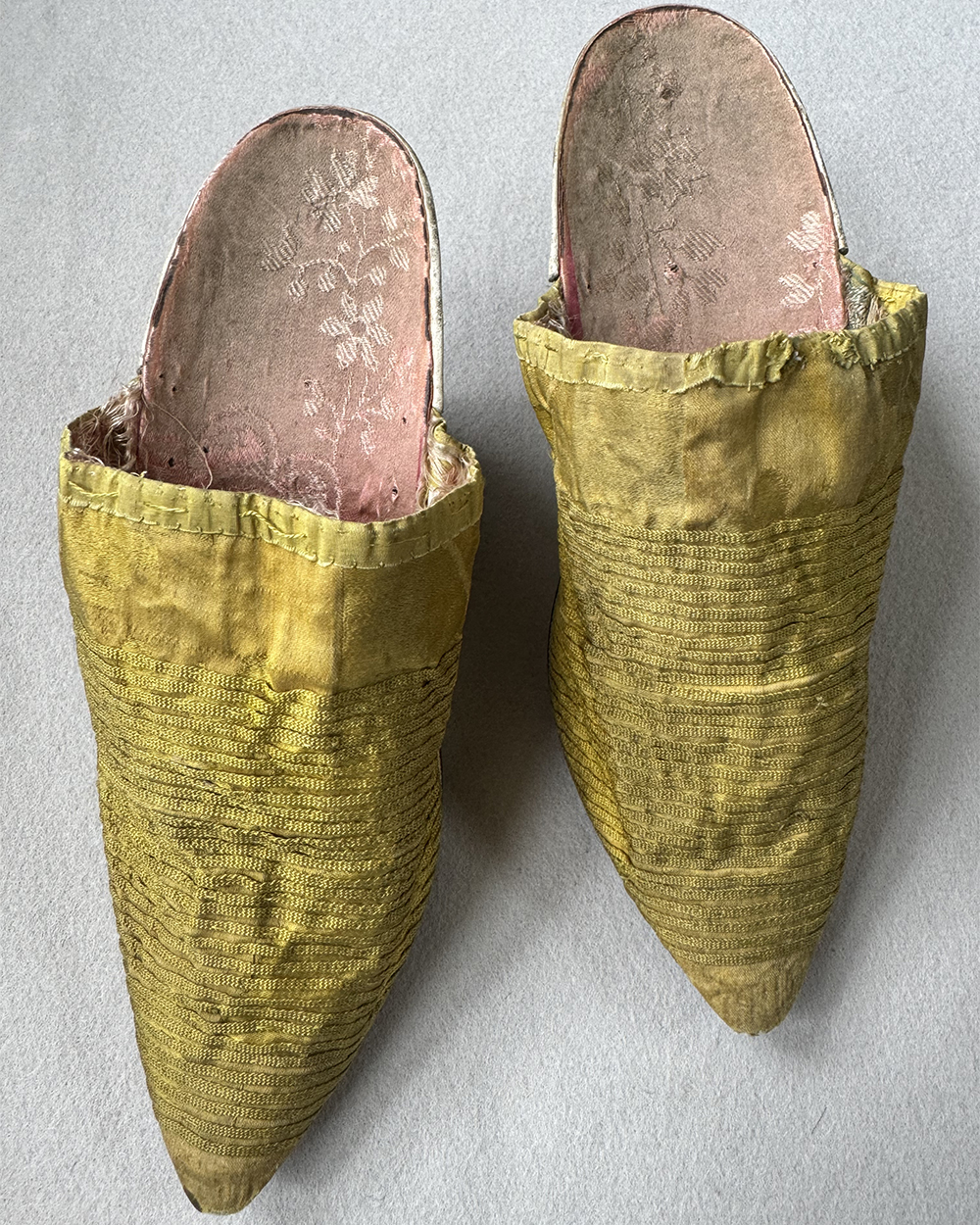
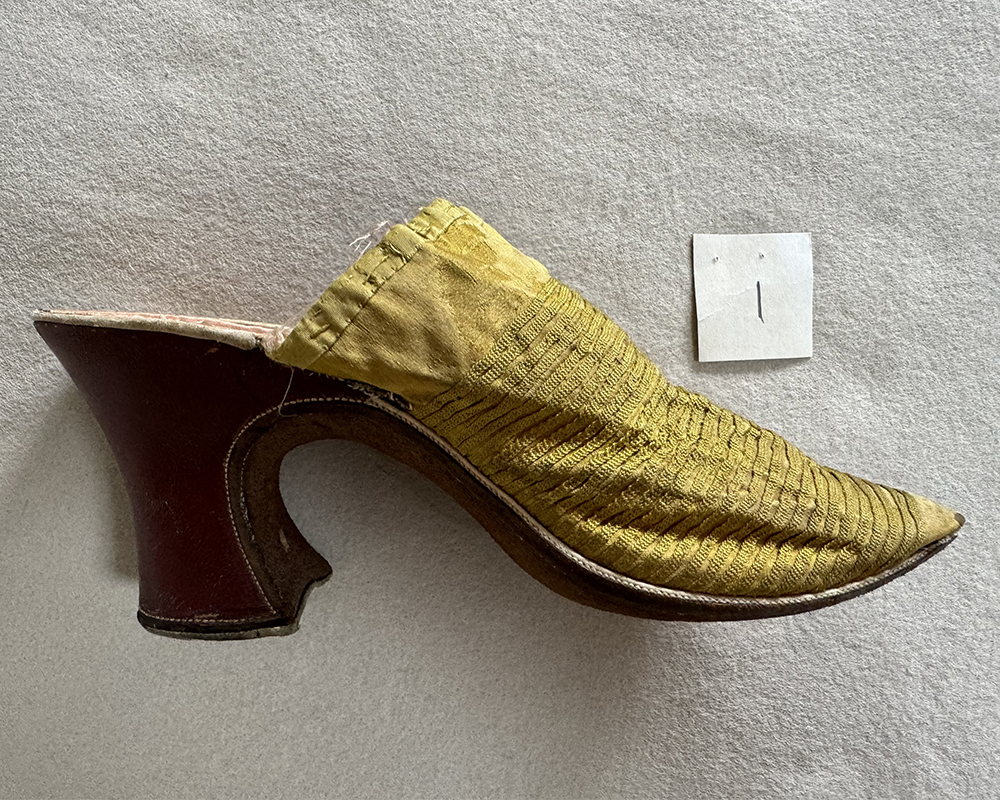
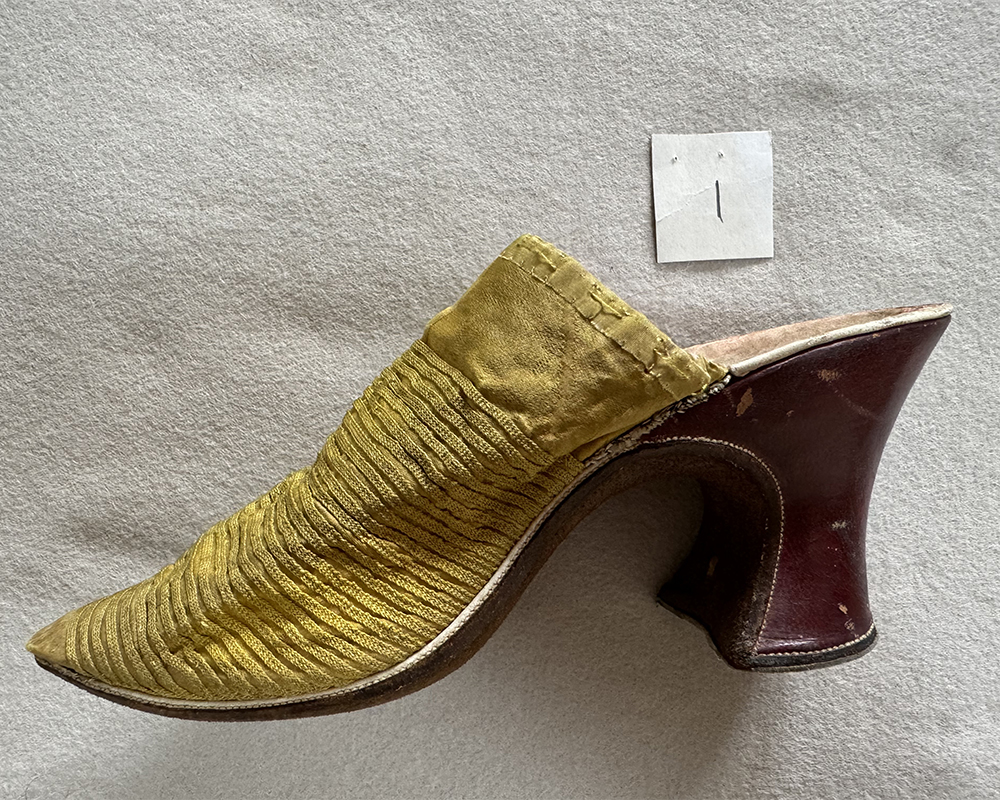
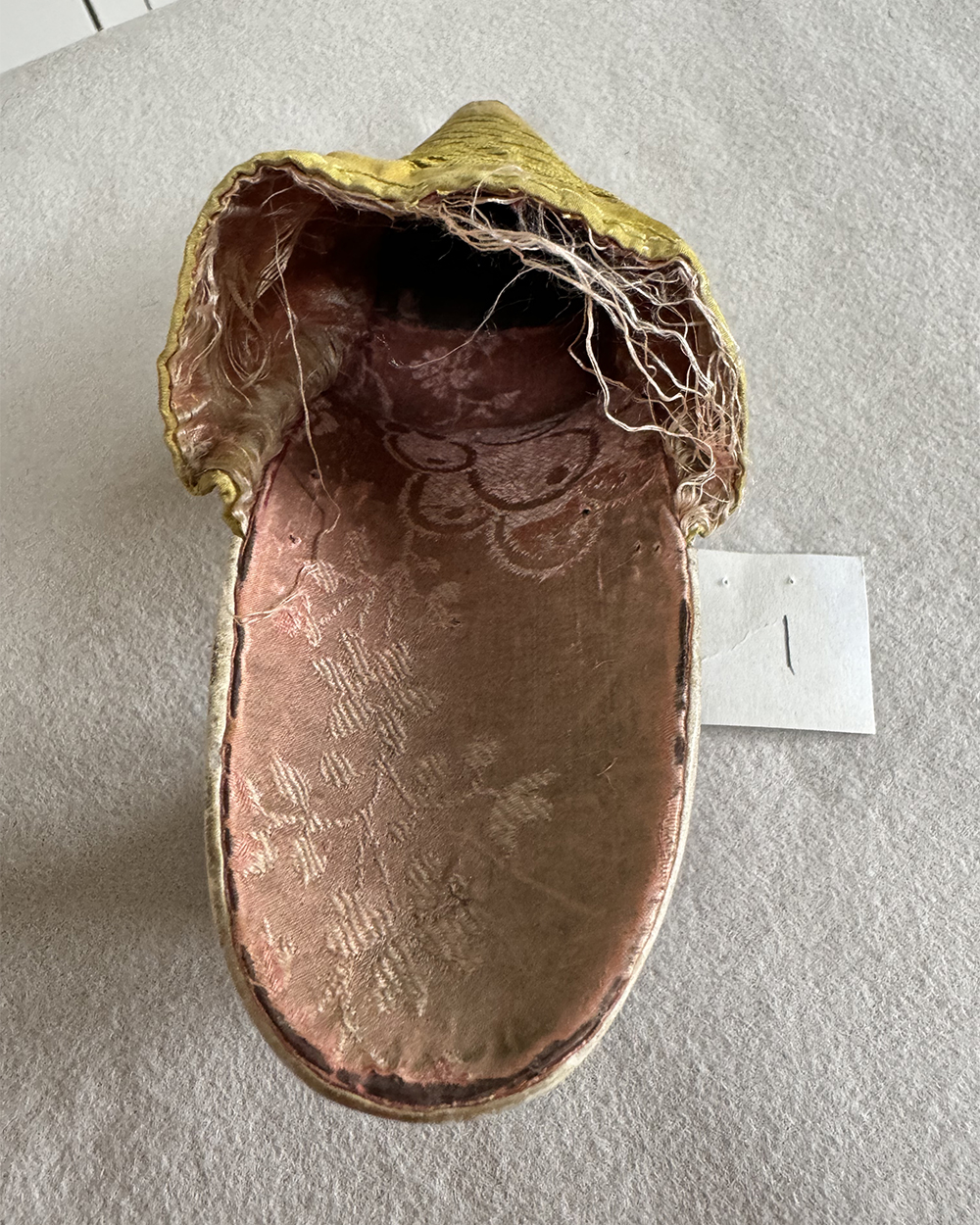
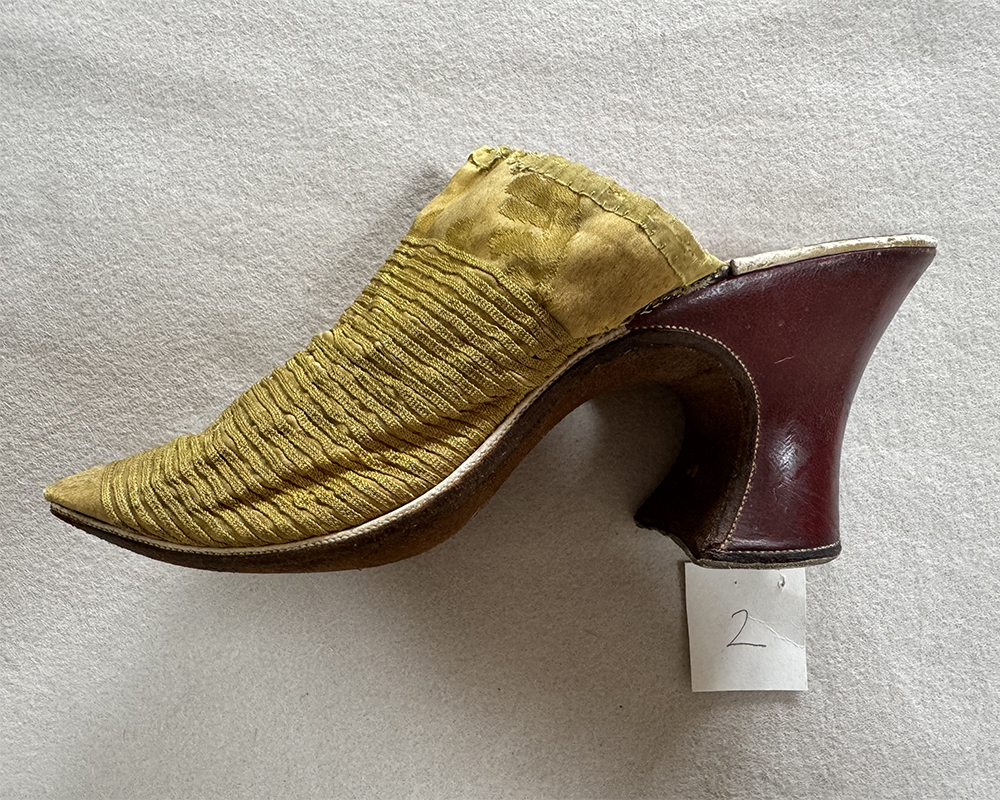
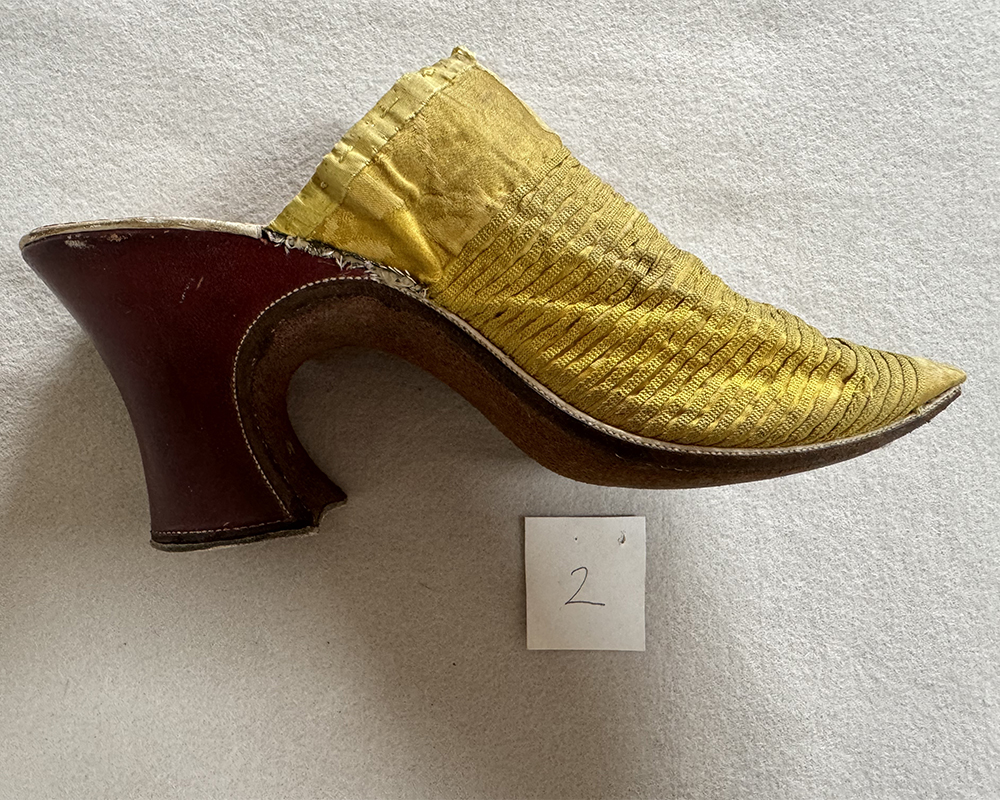
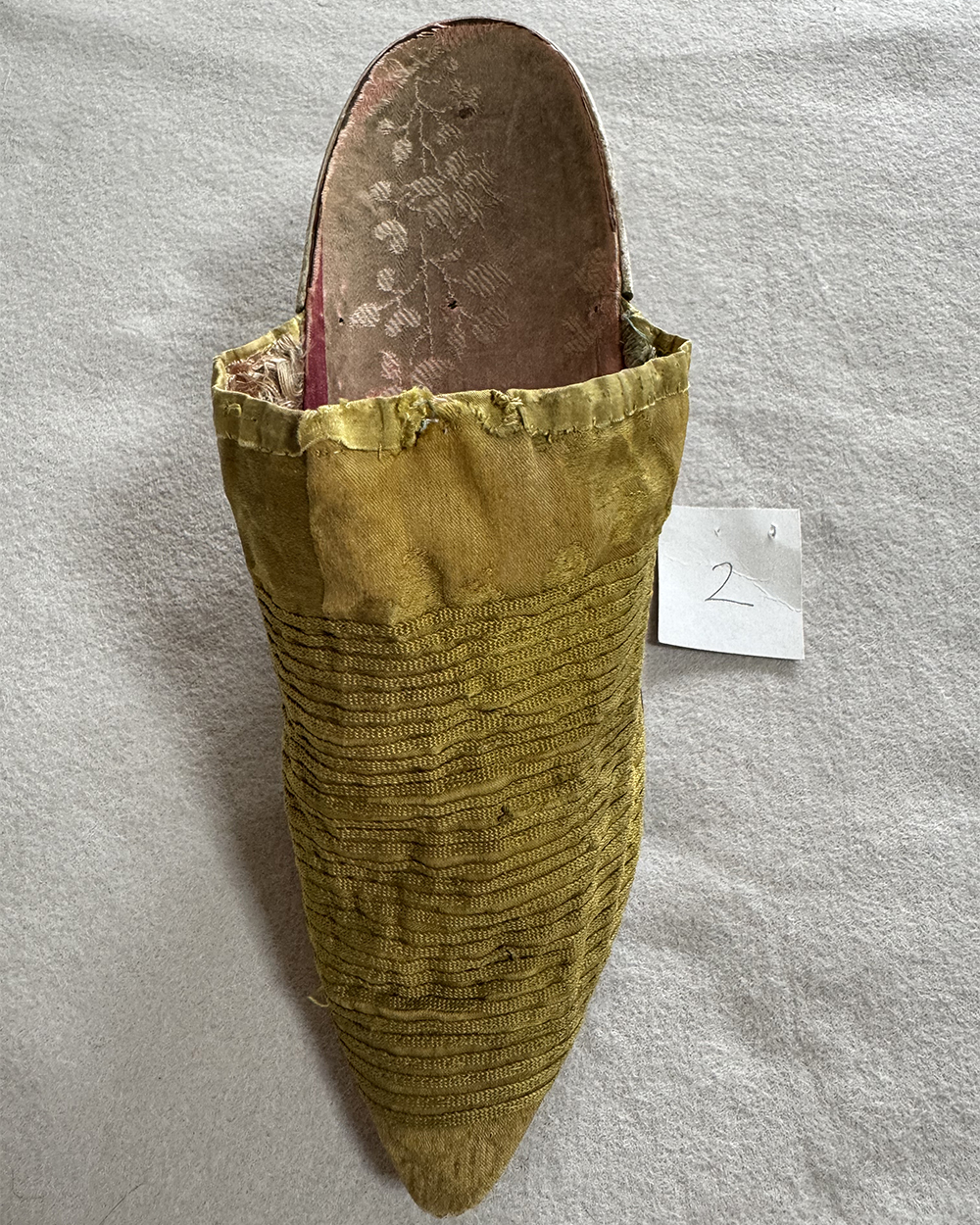
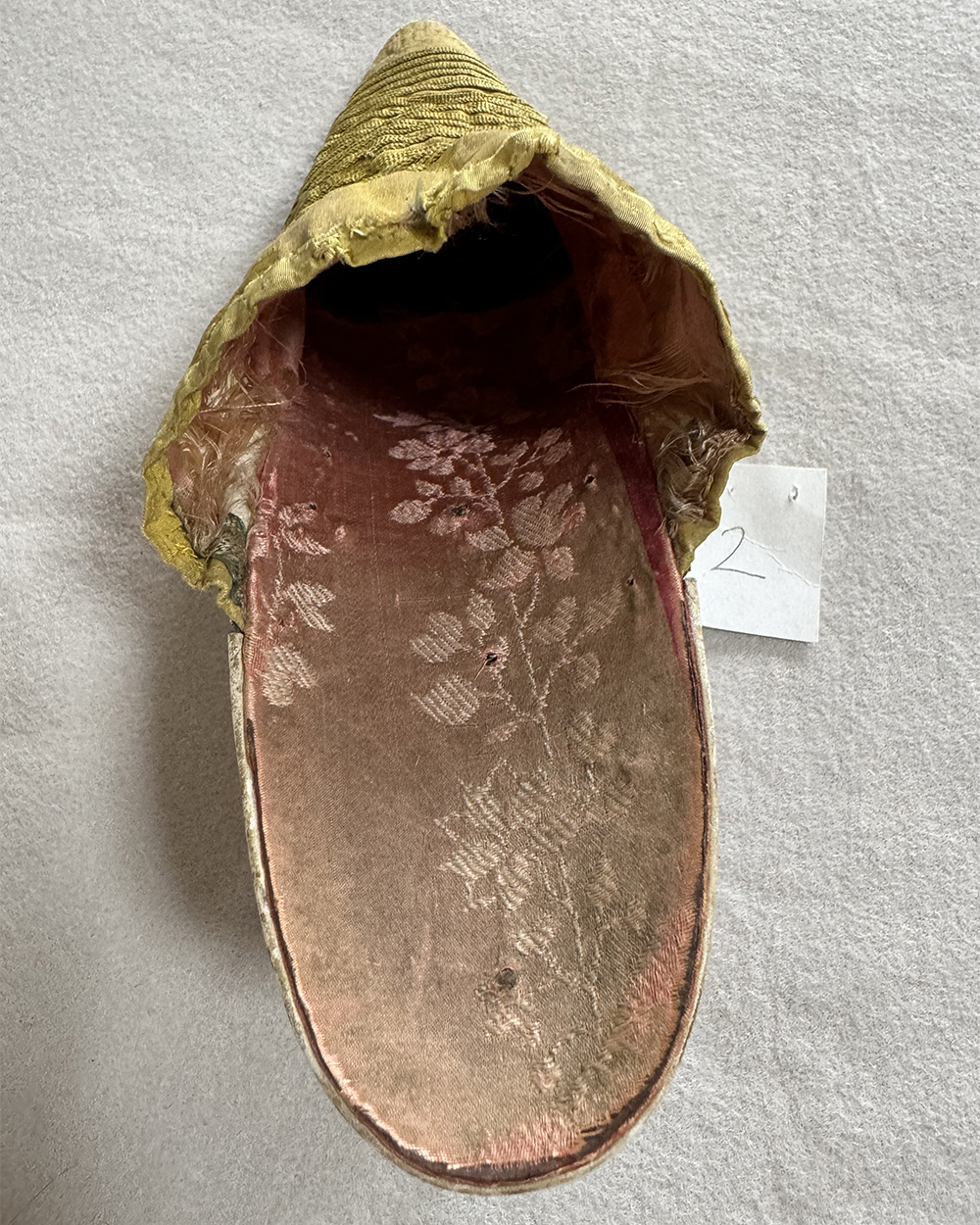
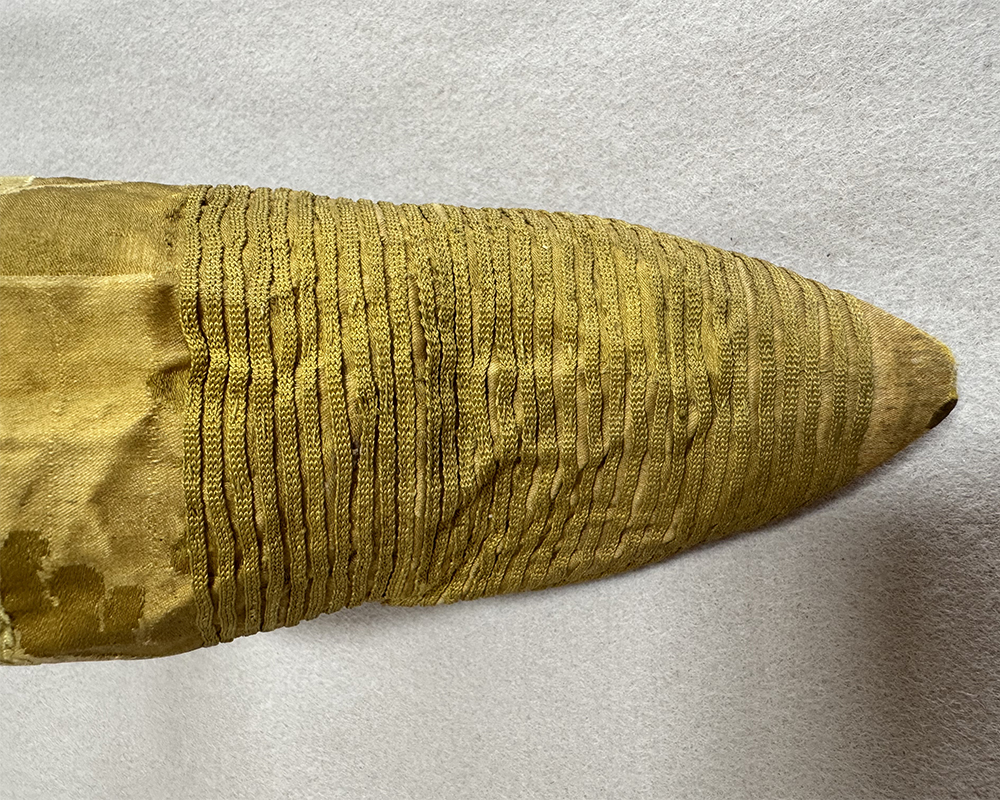
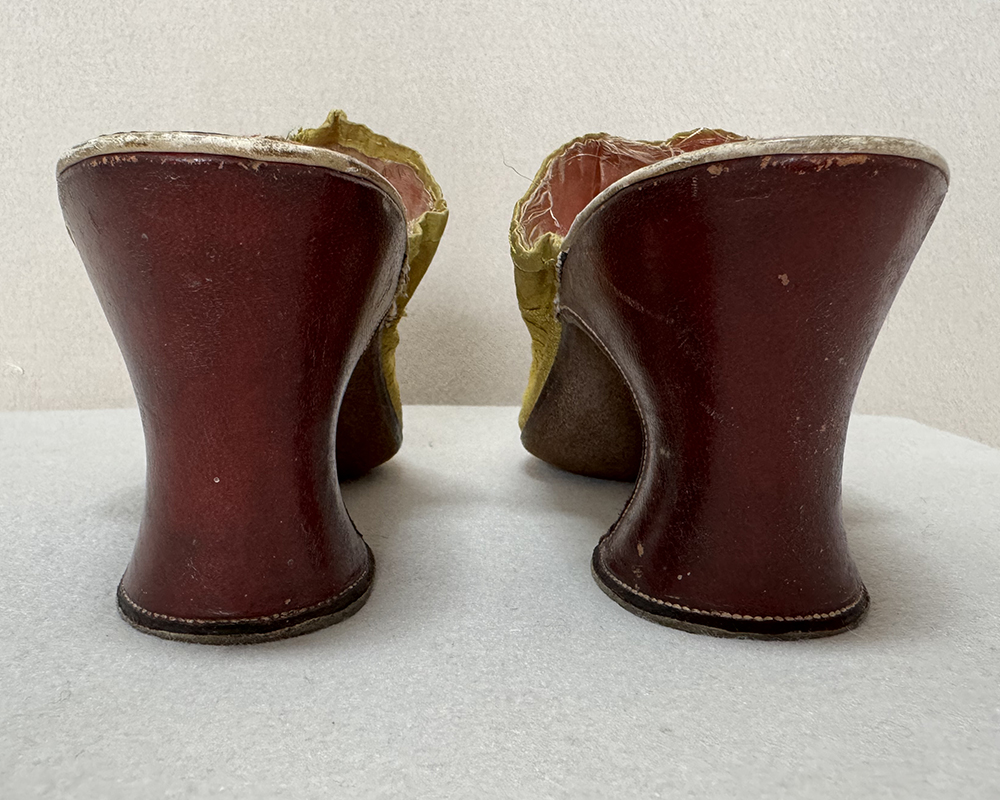
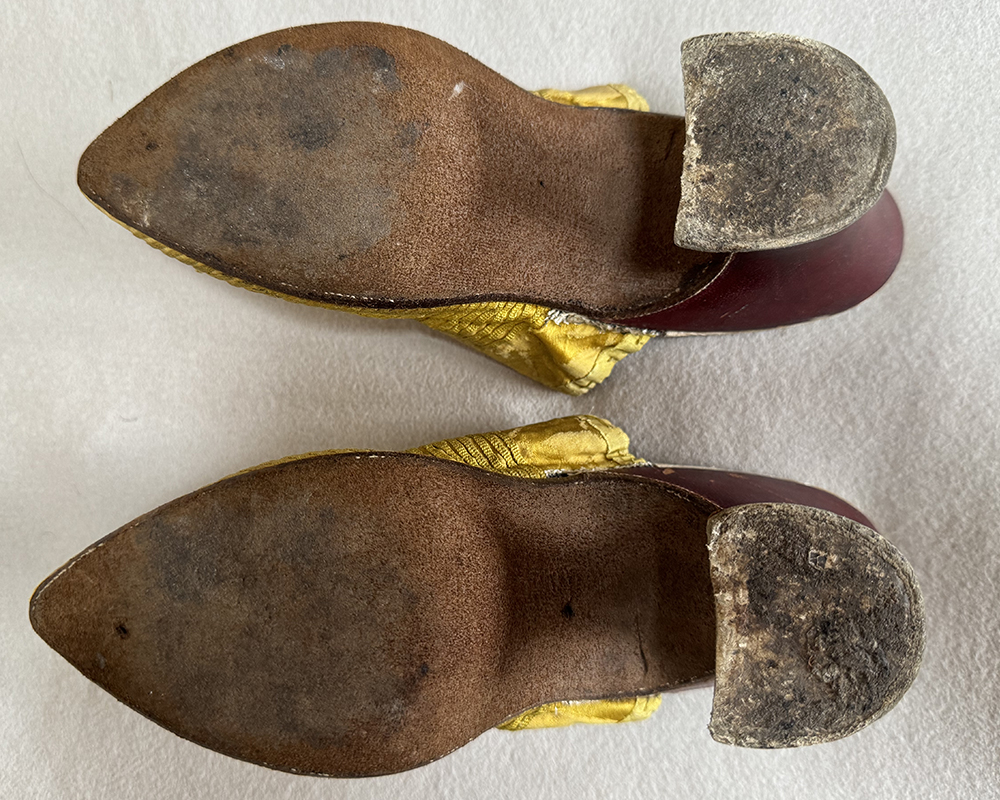
The soles have been sueded to give a rough surface for gripping on polished floors. Nearly all 18th century shoes have worn toes. Jenny Tiramani of the School for Historical Dress suggests that when dancing, the foot might have been raised and the toes touched the floor, which seems a sensible suggestion. Clearly these mules need a little love and attention.
The fronts or vamps of yellow silk damask covered with narrow parallel bands of braid, slightly uplifted pointed toes, the top edges covered in a silk braid with large linen stitches, the insole covered in a salmon pink silk damask with fruits, possibly currants, the upper area covered in fine salmon pink plain silk, the insole edged with whitened leather, the rands or welt similar, the high Louis heel of red Moroccan leather, finely stitched in white thread, the soles sueded
Heel height: 3 in; 7.5 cm
Heel to toe 7 1/2 in; 19 cm
Considering their age they are in very good condition. The toes are slightly worn and there is a small stain to one. The yellow silk is a little grubby and if you look near the rand area is was a brighter yellow, but has faded quite evenly. A braid trim is missing from the fronts. The underside of the uppers is a fine thin coral pink silk, which is frayed and the area near the toes has no silk. The insole of shell pink silk damask is in good condition. You will probably be able to see the wear from the photos.
ia601603.us.archive.org/12/items/storyofquietcoun00pule/storyofquietcoun00pule.pdf
http://www.larsdatter.com/18c/mules.html
Women's Shoes of the Eighteenth Century: Style, Use and Evolution Alison Fairhurst (The Journal of Dress History. Volume 1, Issiue 2, Autumn 2017.
Shoes Lucy Pratt & Linda Woolley p 36, fig 13 for similar braiding.
Footwear Alan & Vanessa Hopkins p 8 for similar braiding.
Price: on request
Ref N°: 1342
All images and text © meg-andrews.com 2021